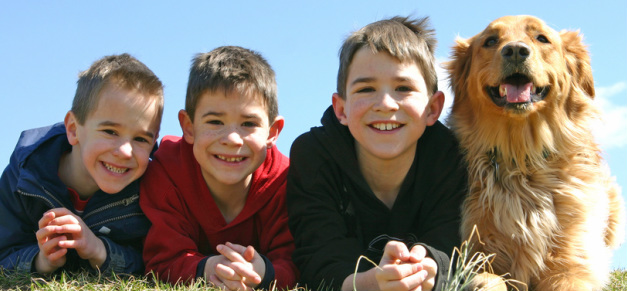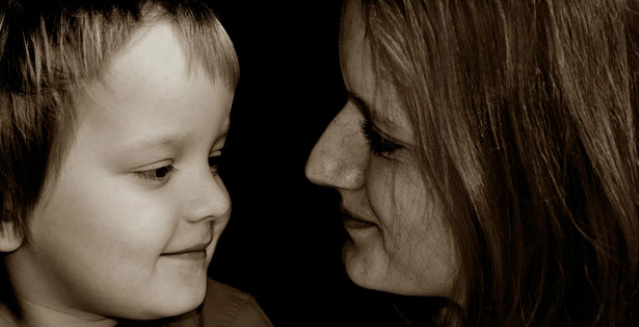|
Judy Lyden Great Expectations. It’s a novel. It’s a story of human life that comes at you on many levels. It’s the story of love and appreciation, of work and of rising out of nothing into something. It has its nightmares and its problems, but it has its surprises, as well. Can we expect great things from our children or from one another? Does our culture allow us to demand great things anymore? Do we have a right to make a child behave or do his homework well or his chores regularly? I remember a very special group of nuns who loved the children in their care. When your ink blotted on your math paper, the expectation was to begin again. There was never a raised voice or a scolded child. It was simply expected, and everyone knew. You didn’t crumple your paper, because that was unladylike. You slipped your paper quietly into the trash can, and you began again silently. Ridiculous, you might think, but it taught us that everything we did mattered. If you carry that thought with you into adulthood, at the very least, the most insignificant things you do will be done well because they matter, from peeling an apple to the real matters of achievement, that of rearing a child. From what teachers see today, we expect virtually nothing, and then we whine when we get it. Children have a license to do nearly anything anytime without regard to anyone else, and we call this civilization. It isn’t. I always laugh when a parent tells me, “I couldn’t get him to do it.” “Really? What are your expectations?” Then they look at you as if a light bulb has gone off. Parents often forget who is in charge. Rarely do ineffective parents have expectations. The children of fruitless, hopeless sloth are not free. In fact, they are prisoners of horrible behavior, which is more emotionally confining than simple, kindly, agreeable behavior. When parents are not in charge and have no expectations, children suffer. In a classroom, the expectations move from parents to teachers. Teachers are supposed to back up parents and fill in for parents who are lax. They are supposed to be tough, caring, intelligent and filled with expectations for the kids in the room. I salute all of my children’s grade-school teachers because of their strong and decent influence. It starts at birth in the home when parents expect a good schedule for infants and toddlers. By 3 and the preschool years, a child’s behavior should be under control. He should have learned the hard lesson: how to listen. By 5, a child should be able to conduct himself like a gentleman and turn his listening skills into learning. Discipline today counts now as much as it did in the times of Great Expectations. Then as now, it should be a normal daily matter of attention to detail, and a conversion of manners, which means a gentle turning toward the best we can be from the inside out. Expect great things from a child, demand the world, and he will give it to you. Expect nothing and that will be yours also, and his. Taken from “Expect Great Things From a Child—He’ll Give it to You,” Scripps Howard News Service
0 Comments
Dressing my three preschool sons alike seemed sensible at the time. It made clothes shopping easier, for one, and because they were brothers with similar builds and complexions, they looked good in the same clothes. At home it gave a sense of order, however superficial, to a household with three little boys in perpetual motion, and in public it showcased what I was sure was the most adorable set of kids ever. On a deeper level, it appealed to my sense of equity. I didn’t love one above the others, and had determined to never say or do anything that might cause them to think otherwise; I would treat them impartially in all things, big and small. But as soon as they got old enough to make more of their own choices, coordinated clothes were out. As their individual needs changed and became more diverse, I found I continually needed to adapt and change how I gave each one my love and support. I still didn’t love one more or less than the others, but I couldn’t always treat them the same. Now that those boys are grown men, in many respects they could hardly be more different from one another. My early attempts to establish uniformity now seem pure folly, and I thank God for giving each of them the sense to pursue his own interests, develop his own skills, and become his own person. Each probably has some things that he would like to change about himself—there’s always room for improvement—but I love them dearly just as they are. - Keith Phillips ***** Children remember things very clearly and are directly affected by their parents’ attitude and how their parents feel and think about them. So if you’re constantly speaking faith and positive things about your child, either to him or to others, and if you’re thinking positive things about your child, this will have a good, faith-building, positive effect on your child, and he’ll become more like what you think of him and expect from him. But if you are thinking or speaking negatively about your child, either directly or indirectly to him, it will have the effect of making him think negatively about himself and hinder his happiness and self-esteem, his performance, and the way he sees himself. Faith begets more faith; positive attitudes foster more positive attitudes in both yourself and those around you. It takes faith in someone to bring out the best in them. Your child is different from any other child in the world, just as you’re different from any other person in the world. You’re a unique parent, a unique person, and your child is unique. If your child doesn’t have a certain gift that you wish he had, it does not mean that he is inferior, or that he lacks quality or is missing something in his makeup or his mental functions or his ability to have a beautiful life and to be a beautiful person—and most important of all, to make a big difference and touch the life of others. It doesn’t mean that you’re failing as a parent and somehow not helping your child become whatever you think he should be. You’re not failing and your child is not failing. All children have some areas in which they shine. Courtesy of Activated Magazine and Anchor (www.anchor.tfionline.com). Used with permission.
Children are little people.—And if we’d just stop thinking about them as “children” and think about them as people, we’d get a lot further in understanding them and their problems! So why don’t we just start thinking about them as we do about ourselves? People are complex. Children are people too and their problems are also complex. Their feelings are much the same as adults’, and the experiences they go through are very similar to things we go through, only harder for them to understand.—Children are much more vulnerable than adults, and many things they have to go through which though small to us, may seem monumental or even traumatic to them at the time because they don’t have the experience to understand them, and they haven’t been assured like we have that everything will work out in the end! So you have to treat them even more carefully, tenderly and with more consideration than adults. Try to put yourself in the child’s place. Put yourself in as close a situation as you can think of to your child’s situation and think about how you would feel—then you can get a better understanding of him and his problem. Text © The Family International. Photo courtesy of publicdomainpictures.net By Dorcas God has given me 12 beautiful children—eight girls and four boys. When they were younger, I was so busy with their care; I barely had time to catch my breath. But now with all my children almost grown (the youngest is 14), I rely so much on their support and help. I spent one morning reflecting on this and feeling such gratitude for my children, and then I received a call from my third eldest. I began to relay my thankful thoughts to her when she said, “Mom, you need to tell your children these things. It would make them so happy to hear how much they mean to you.” I had just been thinking the same, and I agreed. My 12 children have—over the last 34 years—grown up in an instant. That is contradictory but true. And I am now realizing again and again what treasures my children are to me. All I can say is Thank You. Thank You. Thank You. I am thankful for my children, who have taught me so many of life’s important lessons. I am thankful for the children I still have with me. I am thankful for my children who have spread their wings and are no longer under my roof. I am thankful for the times they remember to call. I am thankful for how they still call me when something is troubling them. I am thankful for my grown children who came to visit me when I was hospitalized. I am thankful for how my children cried when I fell sick. I am thankful for the times when my children have made me laugh when I’ve needed encouragement. I am thankful for how not a birthday passes without one of my daughters baking a cake and serving a lovely birthday meal. I am thankful for how my children call me when my birthday nears, asking what they should get me as a present. I am thankful for the family photo album books that my eldest daughter prints and sends me at the end of every year. I am thankful for how my children cause me to appreciate a variety of personality traits and characteristics. I am thankful for the grandchildren who call me grandmother, and for my children who take care of my grandchildren so well. I am thankful for how my children listen when I am going through a trying time. I want to say to each of my children, “You are needed. I am thankful for you. You are wonderful.” I think there is nothing more fortunate than to feel that you are needed. But unless someone puts this into words, you might never know the place you fill in another’s life. So I decided to take a few moments to express my thankfulness for my children. And as I was doing so, my thoughts gradually turned to Jesus—the one most deserving of thanks. I wondered if I thank Him enough. My praises may not have been as abundant of late, and I wondered if that saddened Him. Of everything in my life, I am most thankful for Him. Because of Him I am able to love others. Because of the love He has given me, I desire to love others in the same way. I have heard it said that praise brings down God’s power, and I believe this to be true. And when one is tired, it is even more important to praise. The fact is, as I sat down to write this, I was feeling rather tired. But after I began to praise, I was strengthened. I started off writing about thankfulness, so naturally I can only end in praise. Article © The Family International. Image courtesy of photostock at FreeDigitalPhotos.net Parents Magazine
Though kids don’t mean to mess up our schedules, dawdling is their way of feeling in control and getting us to focus on them. What’s the solution? If you can give a little to meet your child’s needs, you’ll gain a lot towards meeting yours-and it won’t even take that much time. Here are ten five-minute strategies that will make a difference between misery and motivation. 1. Be understanding: Acknowledge that what your child is doing is important to her. Tell her, “I wish we had more time to play with your dolls. It looks like fun. But right now, your friends are waiting for you at school.” 2. Remove obstacles: Sometimes kids dawdle because they feel overwhelmed. If it takes your child forever to choose a bedtime story, clear the bookcase of titles she never asks for. That way, she can focus on a few favorites. Disorganization is another roadblock. If your seven-year-old is always running late because she can’t find her homework or her sneakers, help her pack her bag the night before and put it by the door. 3. Give a warning: Children cannot stop what they’re doing on a dime. Being able to anticipate an event helps them switch gears. A gentle reminder that your child has five more minutes before having to put his blocks away won’t elicit an “Oh goody,” but it’s far less upsetting than being told he has to drop everything right now. If a reminder doesn’t work, let an egg timer do the dirty work for you. Tell your child that you’re setting the timer for five minutes. When the bell goes off, it’s time to wrap up the activity. If your child protests, remain firm: “I know you’d like to color longer, but the bell rang. Time’s up.” 4. Play beat the clock: For younger children, use the timer to race against time. Tell your toddler or preschooler: “I bet you can’t wash your face, get into your PJs and get under the covers before the timer goes off!” Chances are, he’ll try to get everything done in no time flat. 5. Turn it into a game. Connecting with your child’s playful side is likely to be more successful than issuing ultimatums. One mother I know plays department store in the morning to avoid a half-hour delay while her four-year-old mulls over what to wear. She pretends to be a saleslady, helping her daughter pick out that day’s outfit and admiring how she looks in it. One mother joked that her son was “surgically attached” to his train set. Getting him to leave it inevitably turned into a power struggle, until she hit upon a lighthearted approach. “When we have to go out, I say, ‘Joe, tell your trains you’ll be right back.’ It works really well. He waves goodbye and reassures his trains that he’ll play again soon.” 6. Offer options: Let’s say your two-year-old doesn’t want to stop watching a video, even though the family needs to go out. Tell him that there are two ways to get to the car: hopping on one foot or being carried by you. When you involve him, you have a better chance of transforming your slowpoke into Sir Speedy. 7. Be positive. Instead of making threats about what will happen if your child doesn’t get moving, focus on the good stuff that will happen when she kicks into gear. You could say, “Once we get into the car, we’ll play your favorite tape,” or “As soon as you get into your pajamas, I’ll read you a story.” 8. Get them involved. Kids love to feel needed and capable, which can work to your advantage. To get a poky preschooler out the door, ask her to help you load the car. If your child resists taking a bath, ask for her help in choosing water toys. Once she’s invested in the activity, she’ll be more willing to climb in the tub. 9. Turn the tables. Let your child be the one to get you going. Instead of trying to roust your five-year-old son out of bed every morning, one mother bought him his own alarm clock and instructed him to wake her up when it went off. As soon as her son felt as if he was in charge, he stopped dragging his feet. Another way to put your child in charge is to have her check the weather each morning and tell you whether it’s a “sweater day” or a “coat day”—then she’s more likely to get dressed without a fuss. 10. Go with the flow. Once in a while, put your agenda on hold. Instead of hurrying your child home from the park, let her swing until she says it’s time to go. If you occasionally let your child set the pace, she’s more likely to cooperate when your plans don’t mesh with hers. There’s another advantage to letting your child’s inner clock rule. When you take the time to count flower petals or follow a ladybug, you see the world through your child’s eyes—and you may discover that it’s a pretty nice view. Poem dedicated to all mothers for Mother's Day! Feel free to download the presentation and pass it on - just right click the file icon (under the slideshow) and then select "save" or "save file as"...
Her children rise up and call her blessed. —Proverbs 31:28 Most of all the other beautiful things in life come by twos and threes, by dozens and hundreds. Plenty of roses, stars, sunsets, rainbows, brothers and sisters, aunts and cousins, but only one mother in the whole world. —Kate Douglas Wiggin But one thing on earth is better than the wife, and that is the mother. —L. Schafer Everybody knows that a good mother gives her children a feeling of trust and stability. She is their earth. She is the one they can count on for the things that matter most of all. She is their food and their bed and the extra blanket when it grows cold in the night; she is their warmth and their health and their shelter; she is the one they want to be near when they cry. She is the only person in the whole world in a whole lifetime who can be these things to her children. There is no substitute for her. Somehow even her clothes feel different to her children’s hands from anybody else’s clothes. Only to touch her skirt or her sleeve makes a troubled child feel better. —Katharine Butler Hathaway To a child’s ear, “mother” is magic in any language. —Arlene Benedict Mother is the name for God in the lips and hearts of little children. —William Makepeace Thackeray In the heavens above The angels, whispering to one another, Can find, amid their burning terms of love, None so devotional as that of “mother.” —Edgar Allan Poe Life began with waking up and loving my mother’s face. —George Eliot God could not be in every place With loving hands to help erase The teardrops from each baby’s face, And so He thought of mother. He could not send us here alone And leave us to a fate unknown Without providing for His own The outstretched arms of mother. —George W. Wiseman Old-fashioned motherhood never goes out of style, because it’s all about love. I made people to need love, and I intended for them to first experience that love through their mothers. Mothers are the embodiment of love and care and tenderness—love that even the tiniest baby can feel and respond to. Love is the best thing in life! It’s the most important lesson anyone can ever learn and the greatest gift anyone can ever receive—and mothers teach it and give it like no one else. Life would go on fine without many things, but not without mothers. Old-fashioned motherhood is here to stay! —Jesus Excerpted from the book "The Wonder of Mothers", by Aurora Productions. Click here to purchase this Mother's Day gift book online. Image copyright (c) 123RF Stock Photos |
Categories
All
Archives
March 2024
LinksFree Children's Stories |
||||||







 RSS Feed
RSS Feed
